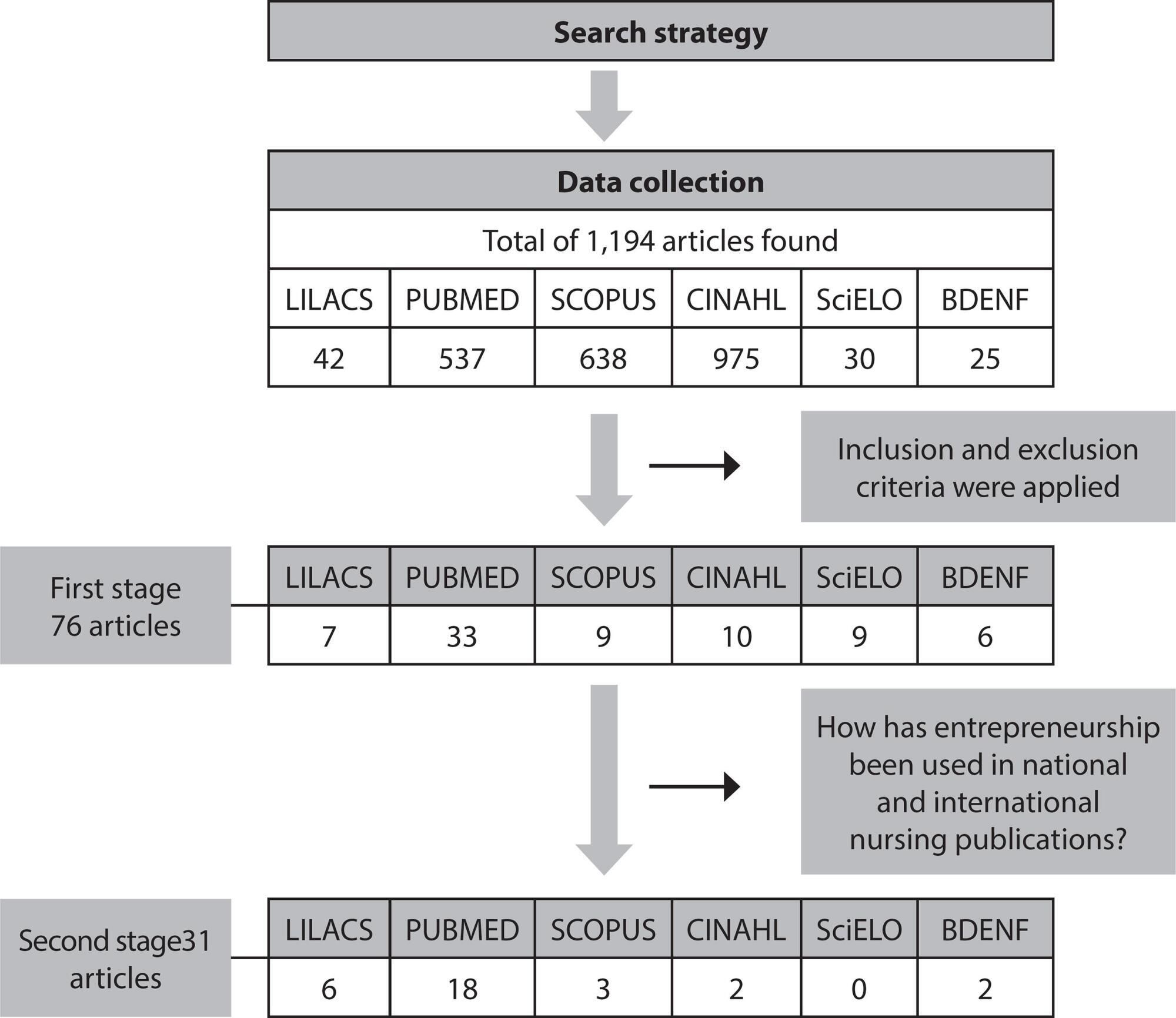-
REVISÃO
The meaning of a “good nurse” in pediatric care: a concept analysis
Revista Brasileira de Enfermagem. 2019;72(2):494-504
04-18-2019
Abstract
REVISÃOThe meaning of a “good nurse” in pediatric care: a concept analysis
Revista Brasileira de Enfermagem. 2019;72(2):494-504
04-18-2019DOI 10.1590/0034-7167-2018-0497
Views0See moreABSTRACT
Objective:
to analyze the attributes, antecedents and consequences of the concept a “good nurse” in the context of Pediatrics.
Method:
concept analysis study based on Rodgers’ evolutionary method. Theoretical stage consisted of searching for articles in the CINAHL, Embase and Pubmed databases and a practical stage of semi-structured interviews with pediatric nurses. The final analysis unified the two stages by categories of antecedents, attributes and consequences of the concept.
Results:
20 articles and 10 interviews were analyzed revealing as antecedents aspects related to education, scientific development and ethical-moral skills and values. Responsibility, compassion, honesty and advocacy stand out as attributes of the “good nurse.” The consequences describe implications for children and families, as well as for professionals.
Final Consideration:
the analysis of the concept of the “good nurse” allowed us to clarify fundamental aspects for the execution of good practices, establishing parameters for investment in professional development programs.
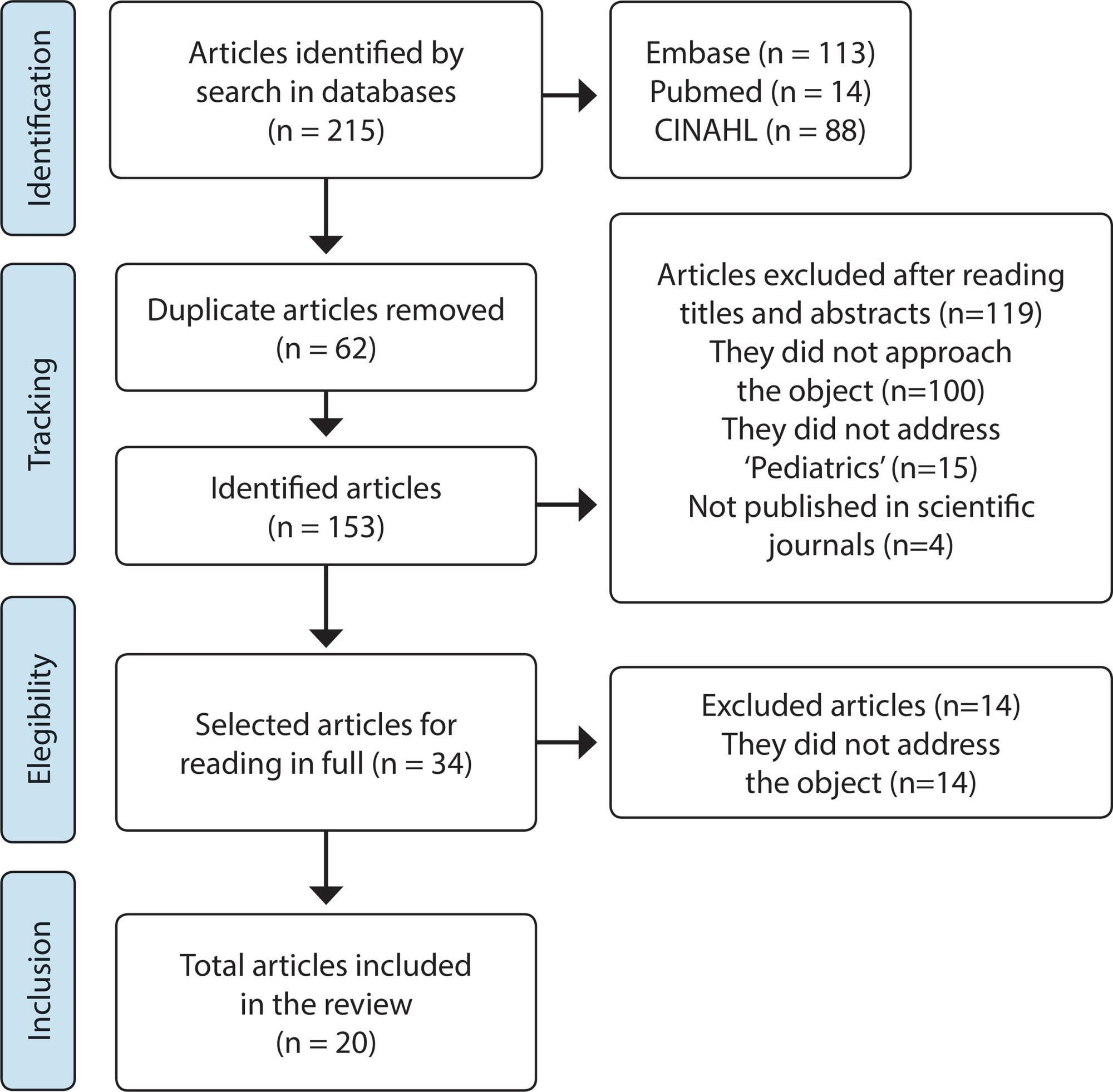
-
REVISÃO
Medical Device-Related Pressure Injuries: an integrative literature review
Revista Brasileira de Enfermagem. 2019;72(2):505-512
04-18-2019
Abstract
REVISÃOMedical Device-Related Pressure Injuries: an integrative literature review
Revista Brasileira de Enfermagem. 2019;72(2):505-512
04-18-2019DOI 10.1590/0034-7167-2018-0530
Views0See moreABSTRACT
Objetives:
To identify and analyze the scientific evidence regarding the occurrence of Medical Device-Related Pressure Injuries, considering the development sites; and to describe the devices of risk and the measures of prevention and treatment.
Method:
Integrative, search-based review: CINAHL, PubMed, Wiley InterScience, Scopus, and Web Of Science. The terms “pressure ulcer” and “medical devices” were used, including original articles and case studies published between 2010 and 2015. Nine studies were selected.
Results:
Posterior cervical region and nose had the highest injury frequencies, respectively, 66.0% and 40.0%. Eleven risk devices were identified, with emphasis on Non-Invasive Ventilation masks and orotracheal tube. For prevention and treatment emerged recommendations specific to the device employed and general measures.
Conclusion:
Medical Device-Related Pressure Injuries are frequent problems, however, they can be prevented and treated based on the recommendations of the articles raised in this review.
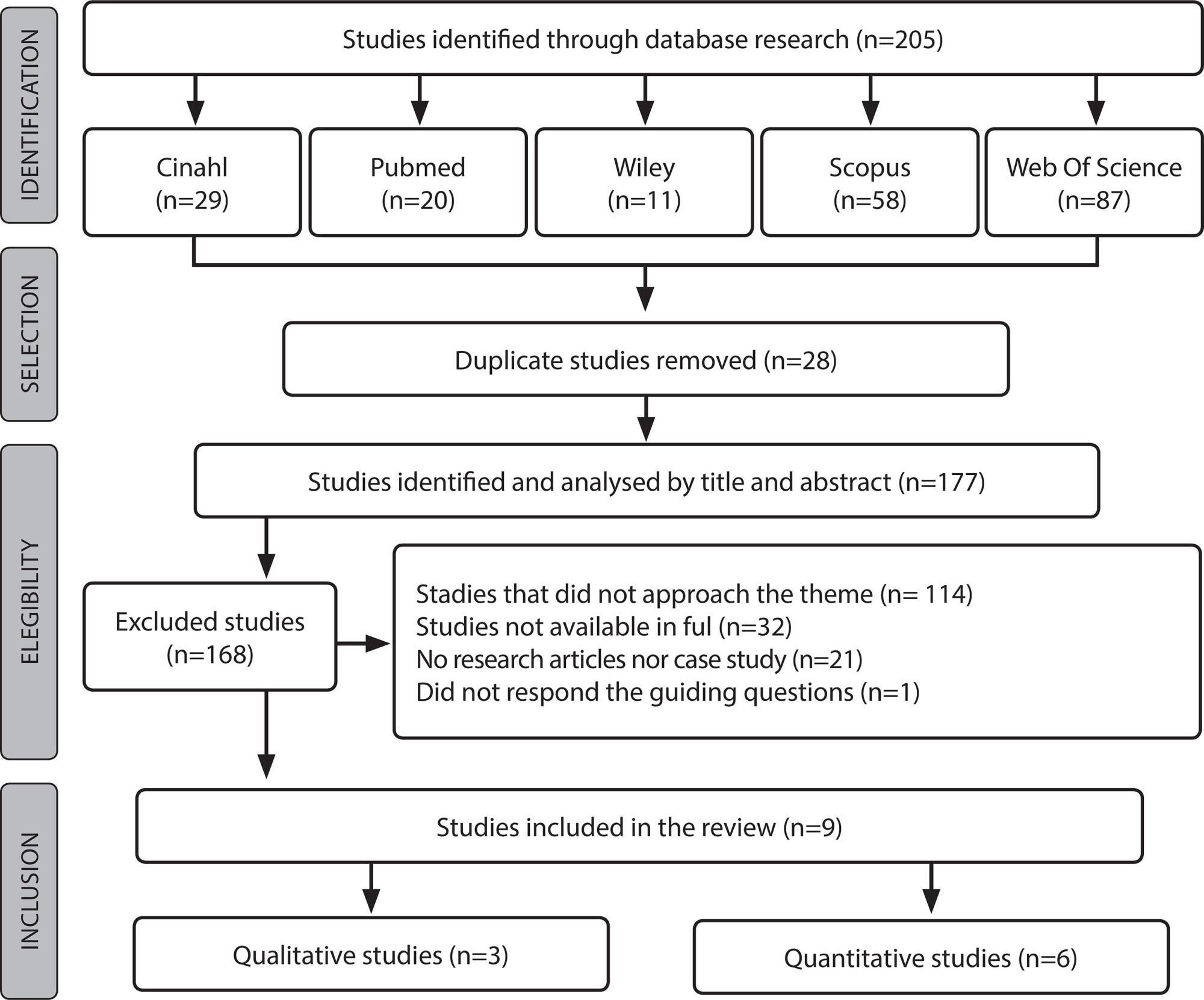
-
REVISÃO
Digital technologies for promotion of healthy eating habits in teenagers
Revista Brasileira de Enfermagem. 2019;72(2):513-520
04-18-2019
Abstract
REVISÃODigital technologies for promotion of healthy eating habits in teenagers
Revista Brasileira de Enfermagem. 2019;72(2):513-520
04-18-2019DOI 10.1590/0034-7167-2018-0352
Views0See moreABSTRACT
Objective:
Identify and analyze the scientific literature on digital technologies for promotion of healthy eating habits in teenagers.
Method:
Integrative review of articles published in English and Spanish, available in full on four databases. The descriptors used were (Adolescent health) OR (Teen health) AND (Healthy diet) OR (Healthy eating) AND (Educational technology) OR (Instructional technology), respectively, from which eight articles were selected.
Results:
Among the studies included, three were digital games; two web-based nutrition interventions; two using online programs to prevent obesity; and one nutritional advice using multimedia. They showed experiences of digital technology and its effects on knowledge improvement and/or behavior of participants when developing healthy eating habits.
Conclusion:
Digital technologies are innovative tools present in the lives of teenagers, with the possibility of being used for education and promotion of healthy eating, contributing to the empowerment of the subject for his/her self-care.
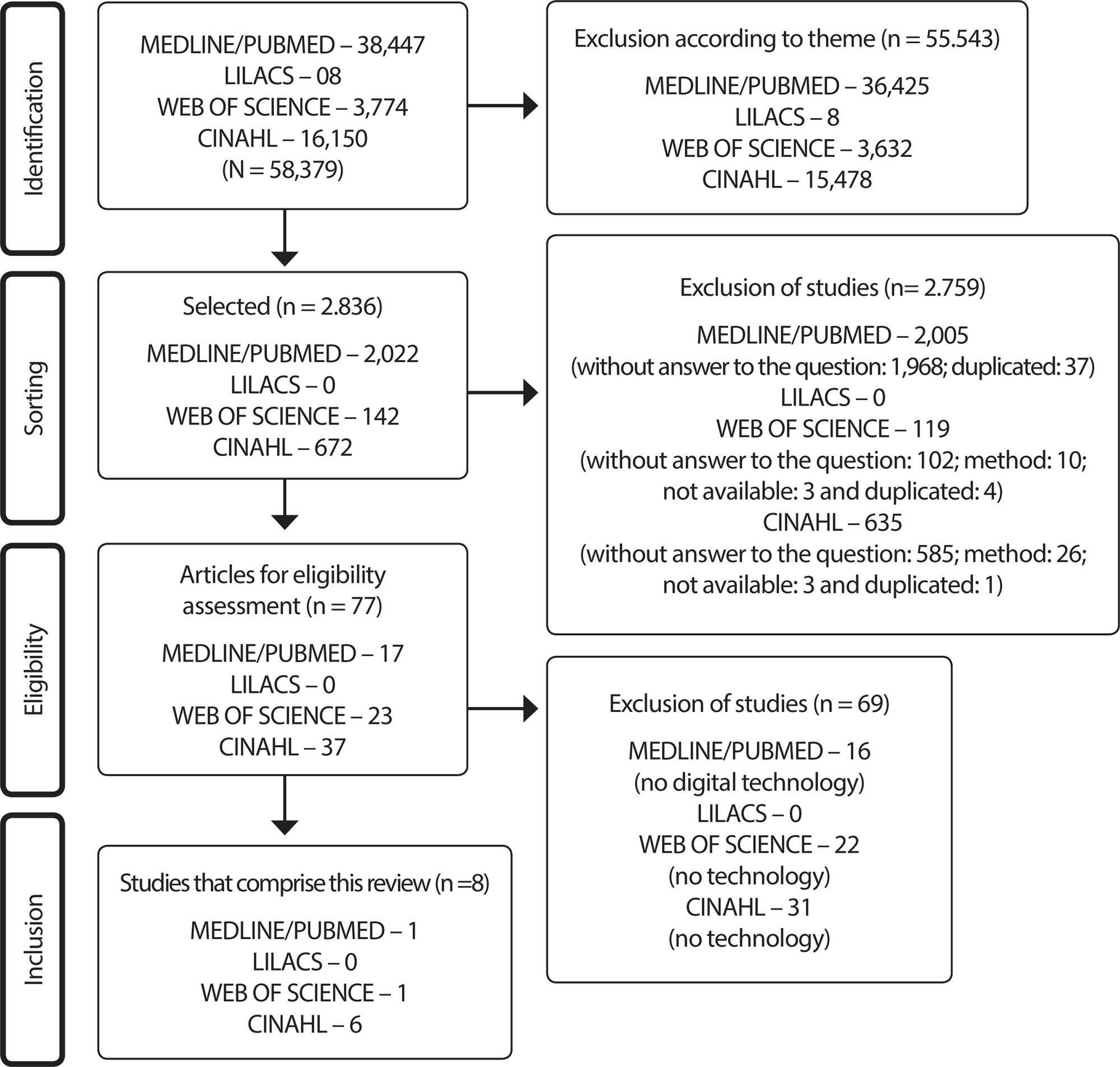
-
REVISÃO
Strategies for preventing ventilator-associated pneumonia: an integrative review
Revista Brasileira de Enfermagem. 2019;72(2):521-530
04-18-2019
Abstract
REVISÃOStrategies for preventing ventilator-associated pneumonia: an integrative review
Revista Brasileira de Enfermagem. 2019;72(2):521-530
04-18-2019DOI 10.1590/0034-7167-2018-0473
Views0ABSTRACT
Objective:
to identify studies about strategies for prevention of ventilator-associated pneumonia deployed in health services and classify their level of evidence.
Method:
integrative review of the literature, in 7 databases, which included the following descriptors: Prevention and Control AND Pneumonia Ventilator-Associated AND Intensive Care Units AND Bundle AND Patient Care.
Results:
twenty-three scientific productions were included. Of the preventive measures identified, 9 (39.1%) correspond from three to five strategies. The most frequent were: 22 (95.6%) lying with head elevated, 19 (82.6%) oral hygiene with chlorhexidine and 14 (60.8%) reduction of sedation whenever possible.
Final Consideration:
the application of measures based on scientific evidence is proven to be effective when carried out in conjunction, impacting the reduction of the incidence of ventilator-associated pneumonia.
Keywords:Disease PreventionIntensive Care UnitNursingPatient Care BundlesVentilator-Associated PneumoniaSee more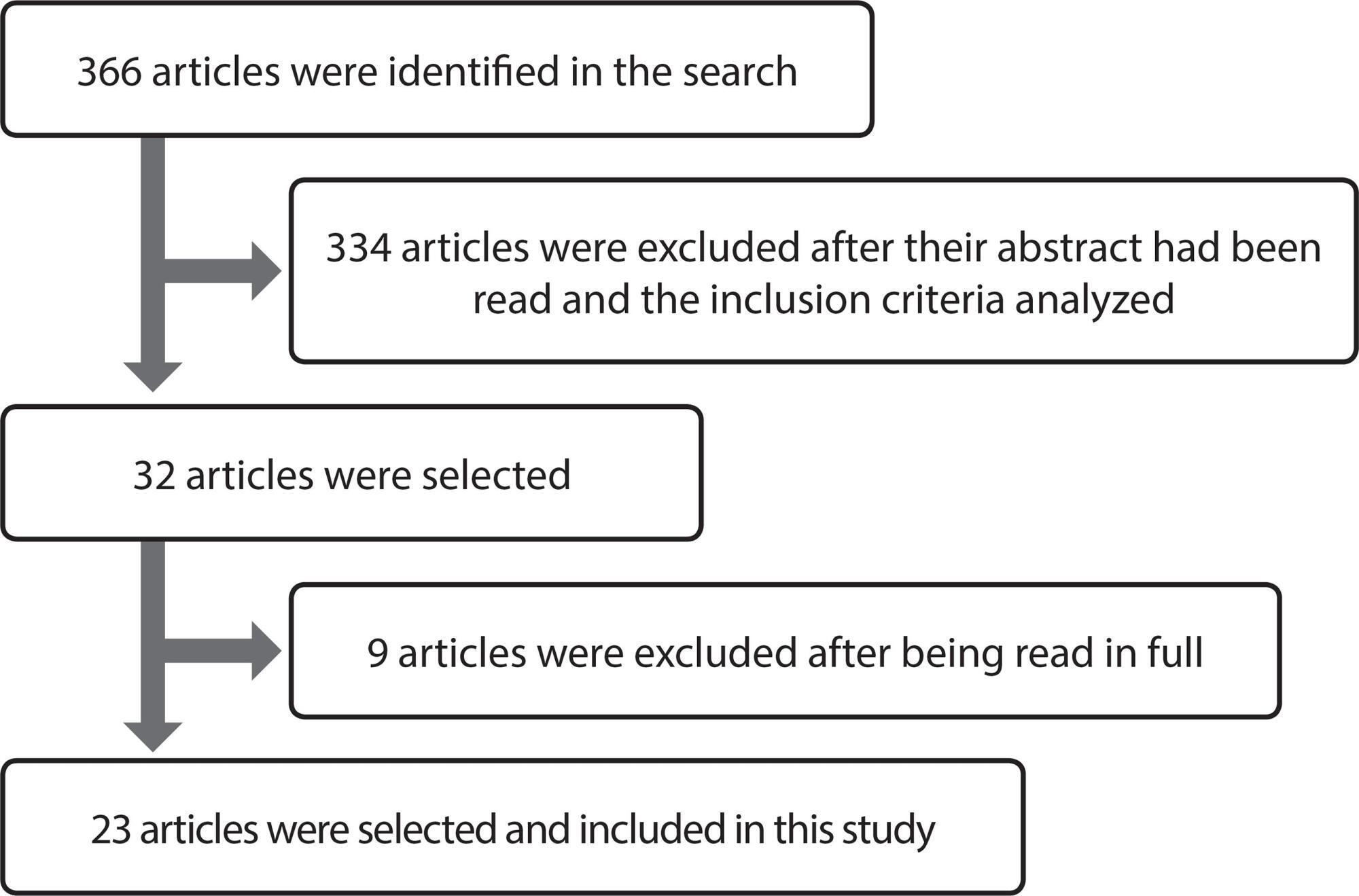
-
REVISÃO
Nursing interventions in palliative care in Pediatric Oncology: an integrative review
Revista Brasileira de Enfermagem. 2019;72(2):531-540
04-18-2019
Abstract
REVISÃONursing interventions in palliative care in Pediatric Oncology: an integrative review
Revista Brasileira de Enfermagem. 2019;72(2):531-540
04-18-2019DOI 10.1590/0034-7167-2018-0121
Views0See moreABSTRACT
Objective:
to identify, in scientific productions, nursing interventions in palliative care in children and adolescents with cancer.
Method:
integrative review of the literature through the databases: CINAHL, MEDLINE, IBECS, LILACS and SCIELO, carried out in October and November 2017.
Results:
we analyzed 18 articles that met the inclusion criteria. The results showed that, among the articles selected, Brazil is the country with the largest number of publications and that interventions such as music therapy, massage, ludic application, early consultation of palliative care, social interventions and physical exercises aimed at the resolution of a specific symptom obtained better results when compared to interventions that aimed at the comprehensiveness of palliative care.
Final Consideration:
we conclude that greater emphasis should be given to palliative care in academic and professional training and that further studies in search of the best evidence should be conducted to support nursing Evidence-Based Practices.
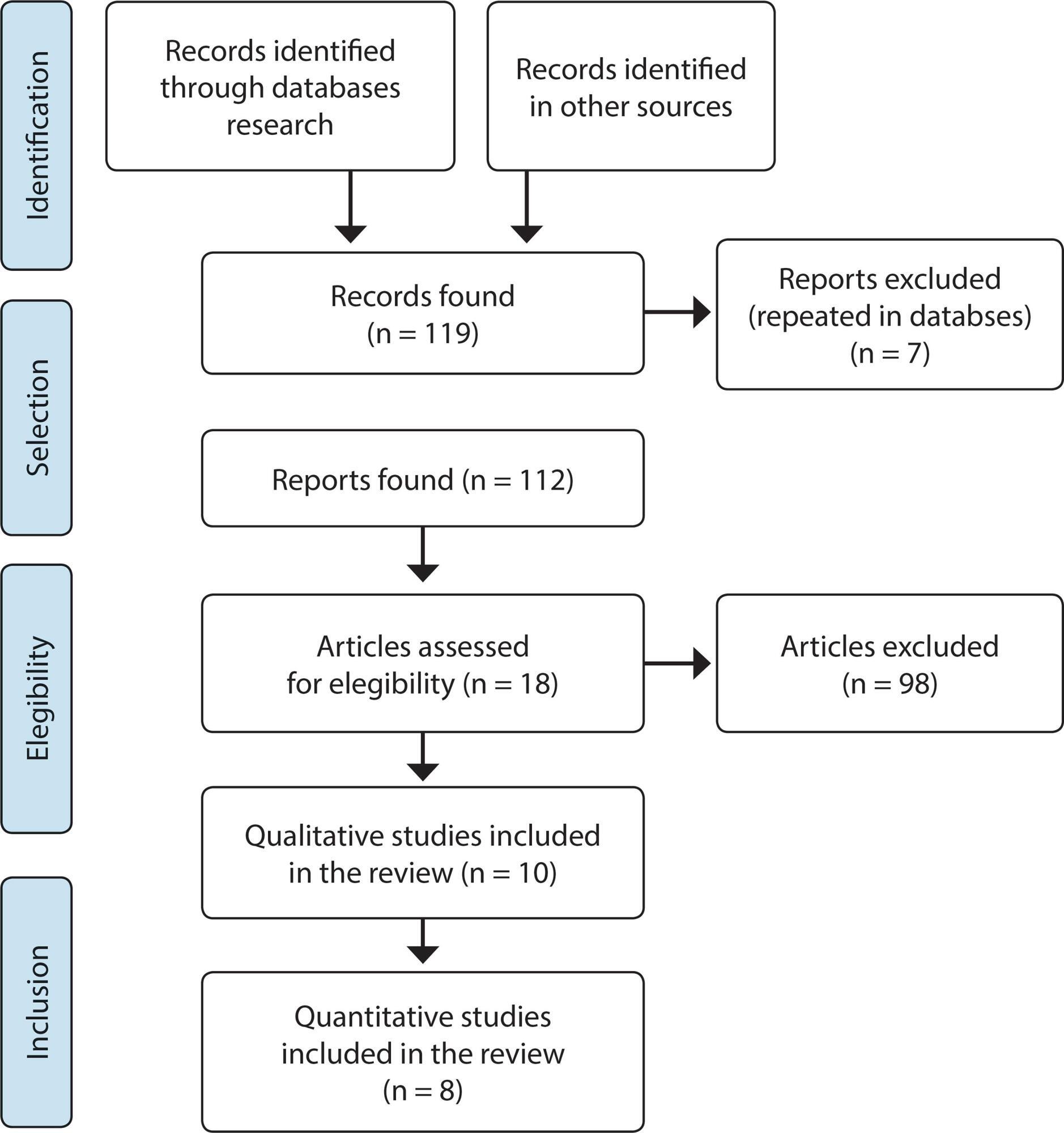
-
REVISÃO
Benefits of spirituality and/or religiosity in patients with Chronic Kidney Disease: an integrative review
Revista Brasileira de Enfermagem. 2019;72(2):541-551
04-18-2019
Abstract
REVISÃOBenefits of spirituality and/or religiosity in patients with Chronic Kidney Disease: an integrative review
Revista Brasileira de Enfermagem. 2019;72(2):541-551
04-18-2019DOI 10.1590/0034-7167-2018-0051
Views0See moreABSTRACT
Objective:
Identify and analyze existing evidence regarding the benefits of spirituality and / or religiosity in patients with Chronic Kidney Disease.
Method:
Integrative review carried out through consultation of databases: Latin American and Caribbean Literature in Health Sciences, Scientific Electronic Library Online, US National Library of Medicine and Scopus. The following descriptors were used: chronic kidney disease, spirituality and religion. Primary articles published by December 2017 were included.
Results:
Twenty-six articles were selected, from which four thematic categories emerged: benefits as a modality of coping, perception of quality of life, mental health and improvement of renal function after transplantation.
Conclusion:
Benefits included those related to situational coping modalities, such as the strengthening of hope, social support and coping with pain; those related to mental health, such as the lower risk of suicide and fewer depressive symptoms; improvement in the perception of quality of life and in renal function after transplantation.
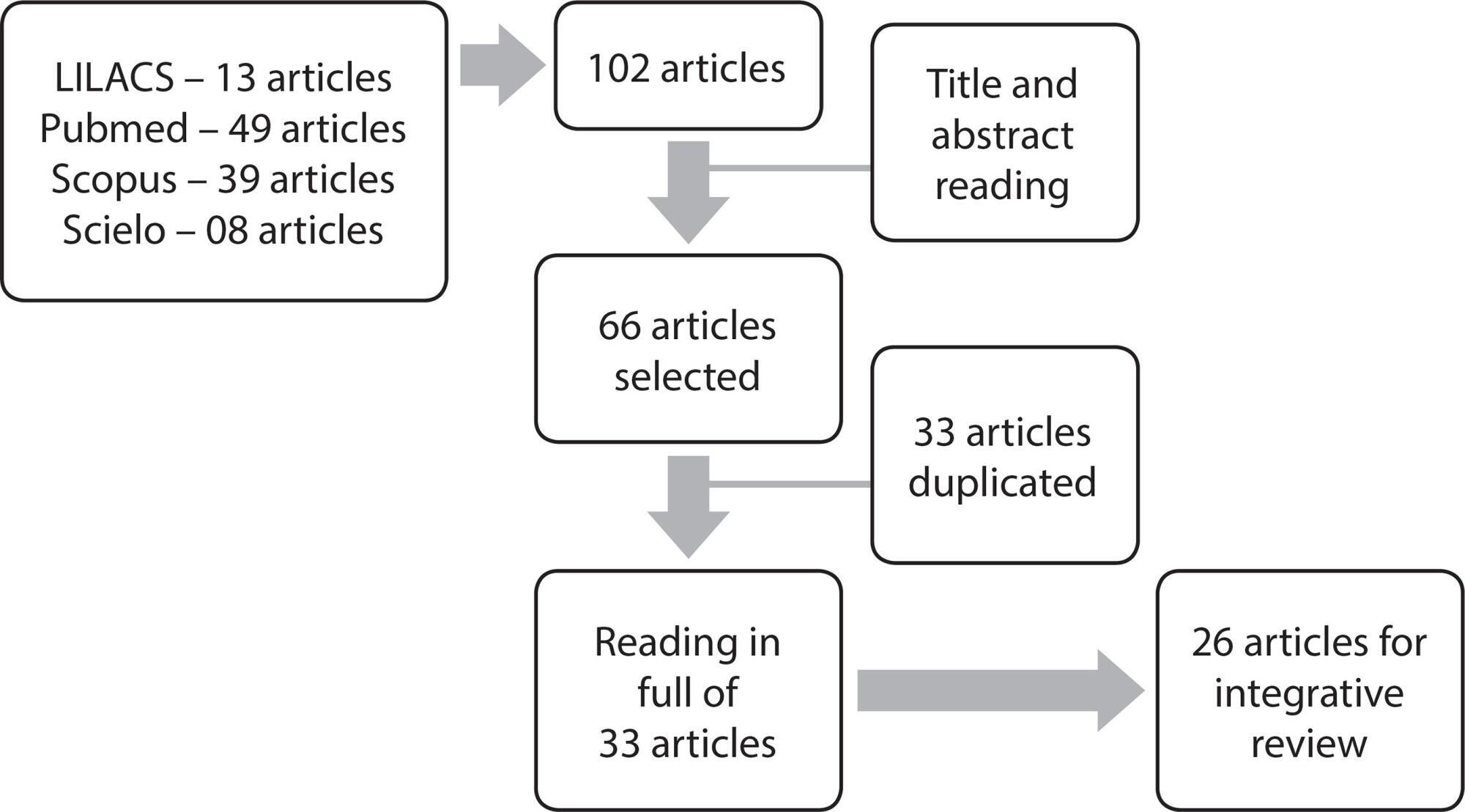
-
REVISÃO
Efficacy of the multimodal strategy for Hand Hygiene compliance: an integrative review
Revista Brasileira de Enfermagem. 2019;72(2):552-565
04-18-2019
Abstract
REVISÃOEfficacy of the multimodal strategy for Hand Hygiene compliance: an integrative review
Revista Brasileira de Enfermagem. 2019;72(2):552-565
04-18-2019DOI 10.1590/0034-7167-2018-0584
Views0ABSTRACT
Objective:
Evaluate, from the literature, the effectiveness of the implementation of the multimodal strategy for health professionals compliance with Hand Hygiene and its sustainability over time.
Method:
Integrative review, with a view to answering the following question: “Is the implementation of the multimodal strategy effective in health professionals compliance with Hand Hygiene and can it be sustained over time?”. The MEDLINE, SCOPUS, LILACS and CINAHL databases were used to retrieve the primary articles.
Results:
Twenty-five studies were analyzed. Among the components of the multimodal strategy, three need to be better worked: health education, feedback from practices and management involvement. Although it needs to focus more on its five elements, interventions based on the multimodal strategy have favored HH compliance and its long-term sustainability.
Conclusion:
The strategy proved to be effective for HH compliance, especially when all integrating components are adequately addressed.
Keywords:Cross InfectionHand hygieneHealth Knowledge, Attitudes, PracticePatient SafetyPersonnel HealthSee more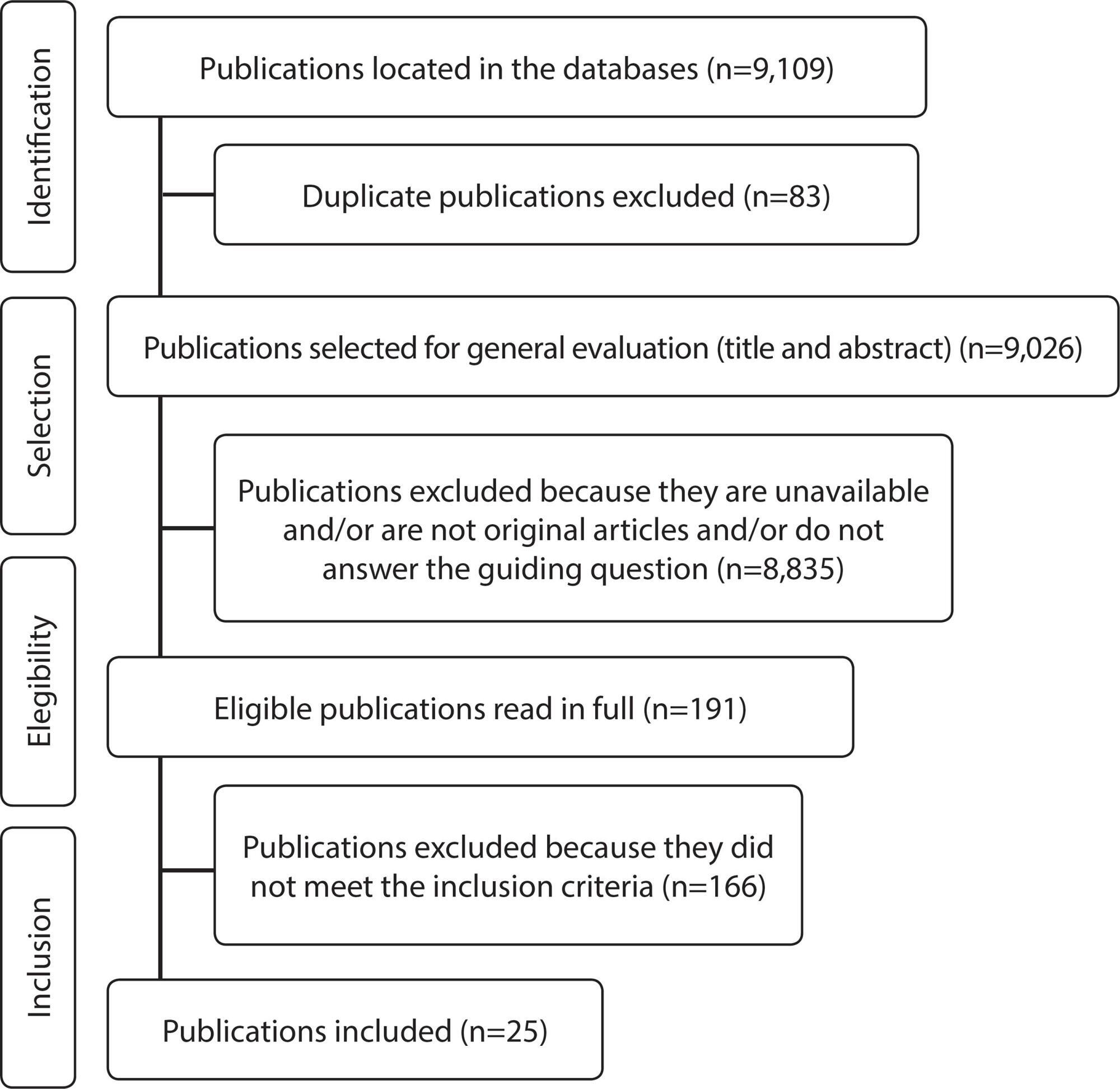
-
REVISÃO
Entrepreneurship in Nursing: an integrative literature review
Revista Brasileira de Enfermagem. 2019;72(suppl 1):289-298
02-01-2019
Abstract
REVISÃOEntrepreneurship in Nursing: an integrative literature review
Revista Brasileira de Enfermagem. 2019;72(suppl 1):289-298
02-01-2019DOI 10.1590/0034-7167-2017-0523
Views0See moreABSTRACT
Objective:
To demonstrate in the national and international literature the concept and typologies of entrepreneurship in Nursing.
Method:
Integrative review in six databases, with the descriptors entrepreneurship, entrepreneurs, entrepreneurial, entrepreneurialism, intrapreneurial, iniciativa empresarial, contrato de risco, nursing, nurse, nurses, enfermagem and enfermeira, making a final sample of 31 articles.
Results:
The concept of entrepreneurship in Nursing is related to personal and professional characteristics, such as autonomy, independence, flexibility, innovation, proactivity, self-confidence and responsibility. The typologies found were: social and business entrepreneurship, and intrapreneurship. Social entrepreneurship is a mechanism of social mobilization and transformation, entrepreneurship is one in which nurses are autonomous professionally and intrapreneurship relates to corporate entrepreneurs.
Conclusion:
Entrepreneurship can increase the visibility of the profession and foster the creation of new spaces for nurses.
